Posted on 12/30/2022

Winter is here, and it's time to take care of your car. Winter weather isn't kind to vehicles, especially if you don't do the right maintenance before it begins. You can do many things to ensure your vehicle is ready for cold weather driving. Here are some common winter maintenance checks every driver should do before they hit the road this season. Check the Tire Pressure and Tread As a general rule, you should check your tires and the tread depth at least once a month. Check for uneven wear on the tires. Contact an auto repair shop if there is any bulging or if you see signs of damage (cuts or cracks). Check Your Battery Your car's battery is one of the most important components in your vehicle because it provides the power you need to start your engine. However, cold weather can stress a battery and cause it to fail. The first sign that something is wrong with your car's battery maybe when you turn on your headlights, and they do not come on. If this happens ... read more
Posted on 11/10/2022
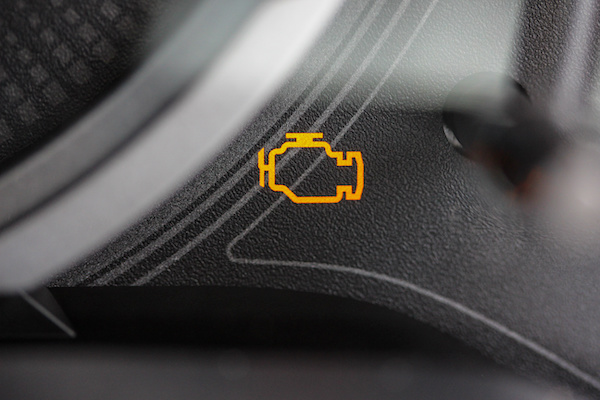
What Should I Do If My Check Engine Light Is Flashing? The check engine light only comes on when a problem has been detected in your car. While a steady check engine light doesn’t require immediate attention, a blinking or flashing one does need help. It means that your engine is misfiring or worse. An engine misfire occurs when the combustion process is not finished or executed correctly, usually due to spark plug problems, an unbalanced air-to-fuel ratio, or loss in compression. As a result, there is a high risk of unburned fuel passing through the exhaust system. Consequently, your engine will run rough, stall out, or not be able to start up at all. You shouldn’t drive with a flashing check engine light until you find the exact cause. Otherwise, you may be operating your car with a faulty catalytic converter which can lead to expensive repairs. To pinpoint the problem, you or a professional technician must use a scan tool to locate the issue. A trouble code will be s ... read more
Posted on 10/27/2022

Sometimes you may hear your car speaking in its own language in sounds such as squeals, bangs, and squeaks and not understand what the vehicle is trying to communicate. Other times you may not even hear the noises or rather hear them and assume it's an ordinary thing. With limited or no car knowledge, it may be difficult to comprehend your car's problems from the sound it produces. Read on to identify common sounds that indicate trouble in your car. Rattling Noises When Driving Over Bumps When you drive over speed bumps or a pothole and hear rattling, vibrating, or squeaking sounds then it may imply your car's bushings, sway bar link, and ball joints are defective. Also, the struts and shocks may be worn out. Squeaking When Turning The Steering Wheel Have you experienced annoying squeaking sounds when making turns with your car? The probable cause could be low fluid levels in the power steering system or a failed steering wheel pump. Low Droning Noises Sometimes you ... read more
Posted on 9/29/2022
.jpeg)
Transmission fluid is similar to engine oil but for the transmission system. It acts as a lubricant and prevents overheating. When your transmission runs normally, your vehicle shouldn't lose or burn through the solution. So, if you experience trouble with shifting or staying in gears or hear or smell any signs coming from the transmission, there's a good chance that you have a leak. In contrast to motor oil, transmission fluid doesn’t require changing as often. In fact, automakers recommend a fluid exchange only after every 30,000 miles or more. It is important that you consult with a vehicle professional if you suspect a transmission problem. In the meantime, you can check your transmission fluid levels and condition at home. Also, it is important to note that not all automatic transmission vehicles have a dipstick. Therefore, you must seek professional assistance to access the fluid. How to Check Your Transmission Fluid Levels Using a Dipstick Make s ... read more
Posted on 8/30/2022
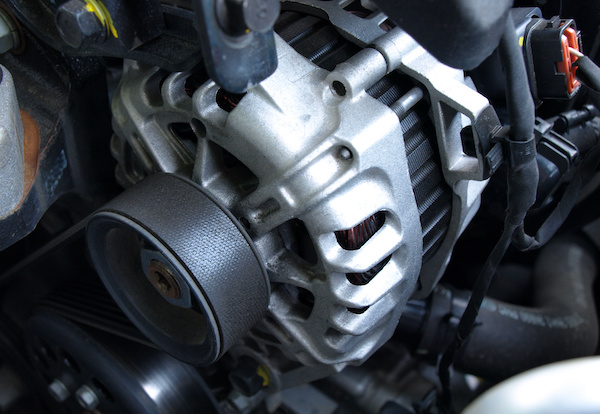
We’ve all been there – stuck and unable to start the car. You go to turn the key or press the button, but absolutely nothing. When a car can’t start up, your immediate thought should be to check the battery. Another component to consider is the alternator and both of which are vital electrical components. Read on to learn more about the differences between the two parts. The car battery is a major power device that turns chemical energy into electrical energy. That energy is used to start the energy. However, none of that process would be possible with an alternator. This piece of the electrical cycle changes mechanical energy into electrical energy. In other words, the alternator resupplies the battery with power. One thing to point out is that your car battery uses chemical reactions, while the alternator does not. Additionally, an alternator has moving parts, such as the belt. Whereas, the battery is a singular device with wires and terminal ... read more
Posted on 7/25/2022
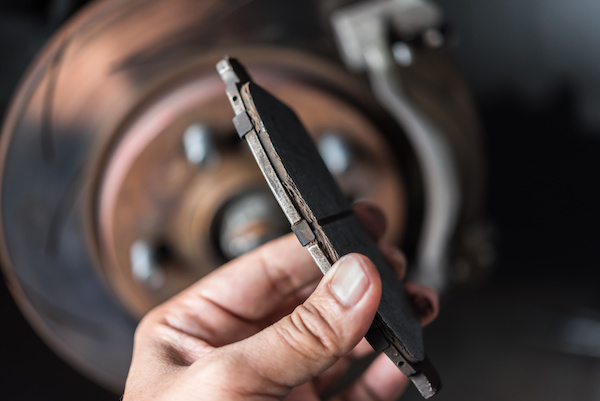
Brake maintenance and replacement might save you money over time. But ideally, when should brake shoes or pads be replaced? There are signs and symptoms that can help you determine when brake replacement is needed. As long as you know what to look for, you will stay on top of any issues with your vehicle's brakes. Let's take a deep dive into when you should change your vehicle's brake pads or shoes. When you use the brakes on your vehicle, some friction material is worn off the pads and/or shoes. This material thins away as time passes, causing lengthy braking distances and damage to the discs and drums. Look for the following indicators to determine whether you need to change your brake pads or shoes: If the brake pads in the vehicle have wear, the driver may hear a whining, screeching, or squealing noise when the brakes are engaged. When brakes are exposed to wet or damp conditions, pads may make a similar screeching noise while used. Although if the ... read more
Posted on 6/30/2022
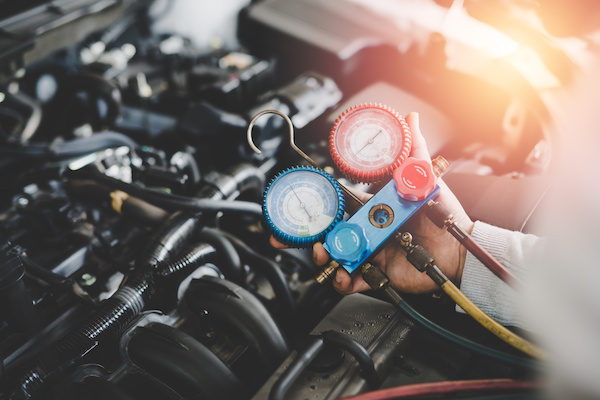
Summer is in full swing in Denton, TX. While the Texas heat lingers year-round, the temperatures are no joke this time of year. If you are a frequent AC user in your car, it is important that you make sure it is properly blowing cold air. When your car starts blowing warm air instead, you most likely have a freon leak on your hands. Refrigerant or freon is the substance that is necessary to allow cool air to flow through your vents. And one of the most common AC repairs happens to be freon leak repairs. Since refrigerant is invisible, it can be hard to detect these leaks. You must take your car to a professional to detect AC leaks. First, we will test your AC pressure. Most technicians have to use a special technique, which involves adding ultraviolet dye to locate the leak. Once the dye circulates, we put a lamp to find its exact location. Once we locate the leak, we can repair the leak and resupply the system with freon. Sometimes, car AC troubles can ... read more
Posted on 5/24/2022
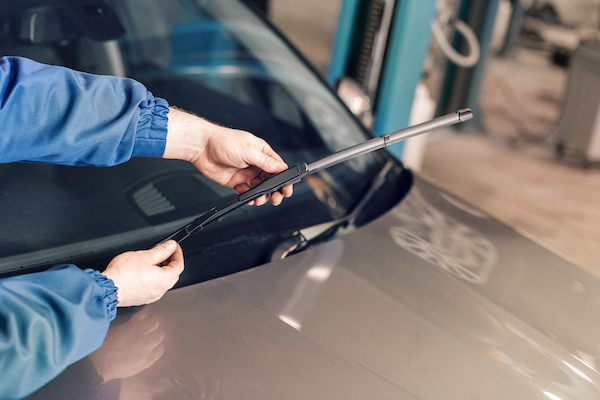
If you’ve ever shopped for wiper blades, you may see the terms conventional and beam wiper blades. While both serve to be reliable at clearing your windshield, they are different styles of wiper blades. Read on to learn the differences between the two blade types. DIFFERENCES BETWEEN CONVENTIONAL & BEAM WIPER BLADES Conventional blades are straight, and beam blades are curved – The extra curvature enhances the blade’s ability to hug and reach more areas of the windshield. When you change from conventional to beam wiper blades, you can expect to see the difference in the passenger side more than anything. Beam wiper blades have higher resistance to wind than conventional blades – High winds create drag and can often lift conventional blades away from the windshield during your drive. Whereas, beam blades turn the wind resistance to pressure instead. Conventional wiper blades and beam wiper blades are made with different materials – conve ... read more
Posted on 4/22/2022

The current winter season is coming to an end, and everyone is eager to enjoy the warmer weather during the spring season. Before road trips, visiting friends and families during spring, make sure you get rid of all ice, salt, and snow damage caused to your car during the winter season. In addition, prepare your vehicle for warmer weather during the summer season. Here, you get more details on how to prepare your vehicle for the spring season; continue reading; Check Your Tires During the winter season, snow-covered roads and cold air can be tough on your car tires. The snow can increase friction on your tire treads thus, increased tear and wear. In addition, the cold weather increases the chances of your tire pressure dropping. Thus, make sure you get an expert to get the health of your tire inspected. Inspect your windshield wipers The snow during the winter season keeps your windshield wipers in use. The increased wipers usage increases their tear and wears and thu ... read more
Posted on 3/17/2022

Driving around Denton, TX, on a warm or hot day without working air conditioning can be miserable. You might try to fix it by turning it off and on again or opening and closing your vents. This situation can make you and your passengers uncomfortable, but it can even be dangerous in the upcoming months. So, please don't hold off on A/C inspection and repairs this season. Today, we will discuss the possible reasons for auto A/C malfunctioning. The most common culprits for weak or malfunctioning A/C are refrigerant/Freon leaks or compressor troubles. However, it can also be linked to a dirty cabin filter or cooling fan issue. If the air blowing through your car vents isn't cool enough, it most likely points to a freon leak. You should bring your car to an automotive professional for an inspection to be sure. If one of our technicians finds that you leak, we can patch up the leak and recharge your A/C system. An A/C recharge is usually necessary if yo ... read more